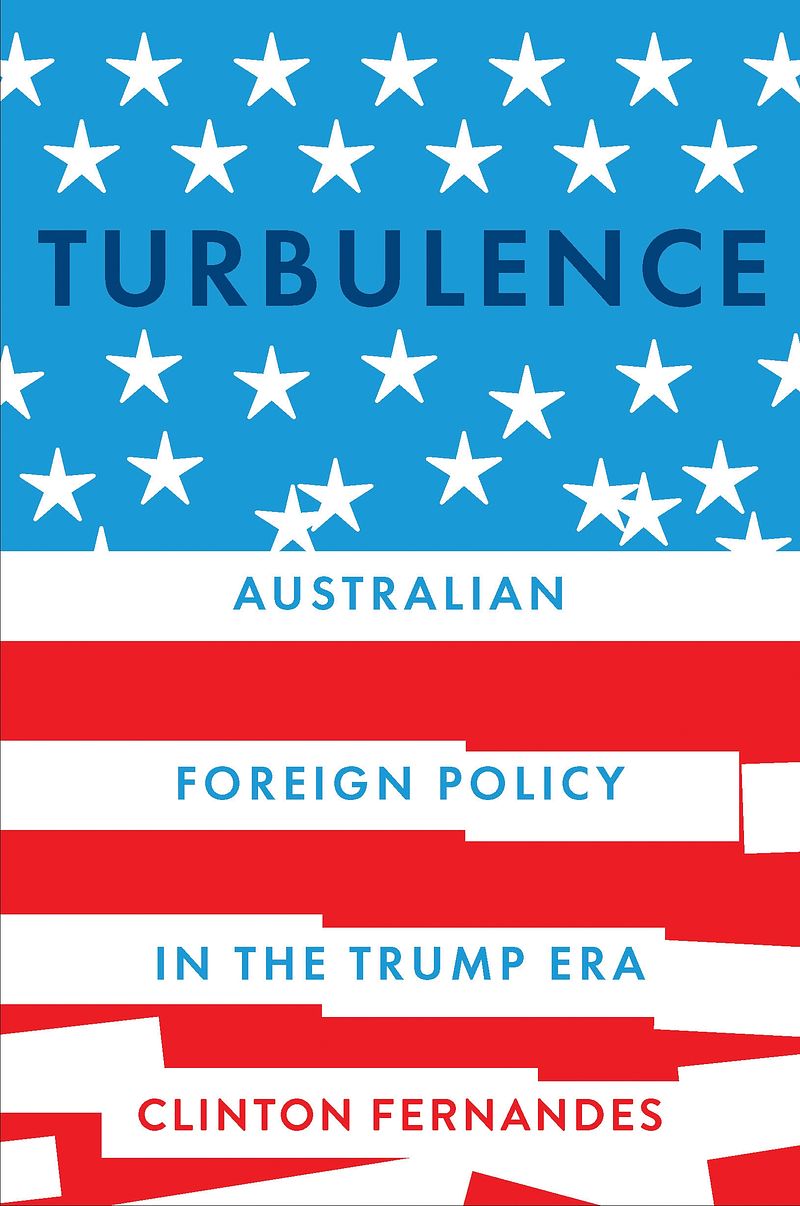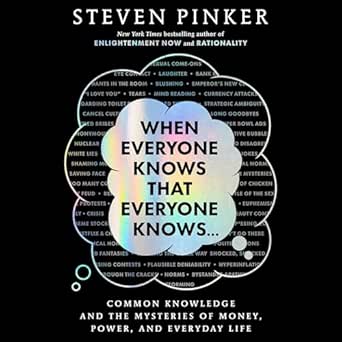
Hypocrisy and folly: why Australia’s subservience to Trump’s America is past its use-by date
(Left)Mark Beeson, Adjunct professor, Australia-China Relations Institute, University of Technology Sydney. Turbulence: Australian Foreign Policy in the Trump Era – Clinton Fernandes (Melbourne University Publishing) Clinton Fernandes has established himself as one of the most original and insightful analysts of Australian security policy. An early career with the Australian Army […]

When Everyone Knows That Everyone Knows
This is a brilliantly insightful work that explains how we think about each other’s thoughts, ad infinitum. It sounds impossible, but Steven Pinker shows that we do it all the time. This awareness, which we experience as something that is public or “out there,” is called common knowledge, and it […]

Empire of the Elite
By Michael Grynbaum For decades, Condé Nast and its glittering magazines defined how to live the good life in America. The brilliant, complicated, striving characters behind Vogue, Vanity Fair, The New Yorker, GQ, Architectural Digest, and many other titles manufactured a vision of luxury and sophistication that shaped consumer habits, cultural trends, intellectual attitudes, and […]

The Opposite of Settling
Forget settling or “settling down” – you deserve a love that upgrades every aspect of your life. A love that empowers you to get hotter, happier, and more fulfilled… together. The host of the podcast New Mindset, Who Dis? helps you find a partnership that fills your life with “can you believe […]

Weekend coming up…
Close the computer and enjoy a good book. Moby Dick Herman Melville The Marriage of Cadmus and Harmony – Roberto Calasso The Universal Turing Machine – Richard Beard A Dance to the Music of Time – Anthony Powell Our Man in Havana- Graham Green The […]

Empire of AI: Dreams and Nightmares in Sam Altman’s OpenAI
From a brilliant longtime AI insider with intimate access to the world of Sam Altman’s OpenAI from the beginning, an eye-opening account of arguably the most fateful tech arms race in history, reshaping the planet in real time, from the cockpit of the company that is driving the frenzy, When […]

Graydon Carter hired Christopher Hitchens, pissed off Trump and revealed Deep Throat
Julian Novitz Senior Lecturer, Writing, Department of Media and Communication, Swinburne University of Technology. The editor of Vanity Fair, Radhika Jones, is stepping down after seven years. Amid the media buzz about who might take her role – long considered a plum one – is a surprising question. “Is it still […]

When the Going Was Good: An Editor’s Adventures During the Last Golden Age of Magazines
From the pages of Vanity Fair to the red carpets of Hollywood, editor Graydon Carter’s memoir revives the glamorous heyday of print magazines when they were at the vanguard of American culture When Graydon Carter was offered the editorship of Vanity Fair in 1992, he knew he faced an uphill battle—how to […]

Careless People: A Cautionary Tale of Power, Greed, and Lost Idealism
by Sarah Wynn-Williams Power and corruption – the power system we live in – accountability. Think about the systems you are a part of. Being careless can have huge consequences. Working for Mark Zuckerberg may not be the best option and did Sheryl Sandberg “Lean In’ too far? An explosive […]

The EU will spend billions more on defence. It’s a powerful statement – but won’t do much for Ukraine
Jessica Genauer, Senior Lecturer in International Relations, Flinders University. On March 3, US President Donald Trump paused all US military aid to Ukraine. This move was apparently triggered by a heated exchange a few days earlier between Trump, Vice President JD Vance and Ukrainian President Volodymyr Zelensky in the Oval Office. In response, […]

In siding with Russia over Ukraine, Trump is not putting America first – he is hastening its decline
Matthew Sussex, Associate Professor (Adj), Griffith Asia Institute; and Fellow, Strategic and Defence Studies Centre, Australian National University. Has any nation squandered its diplomatic capital, plundered its own political system, attacked its partners and supplicated itself before its far weaker enemies as rapidly and brazenly as Donald Trump’s America? The […]

Open Socrates: The Case for a Philosophical Life
by Agnes Callard An iconoclastic philosopher revives Socrates for our time, showing how we can answer―and, in the first place, ask―life’s most important questions. Socrates has been hiding in plain sight. We call him the father of Western philosophy, but what exactly are his philosophical views? He is famous for […]

Hypocrisy and folly: why Australia’s subservience to Trump’s America is past its use-by date
(Left)Mark Beeson, Adjunct professor, Australia-China Relations Institute, University of Technology Sydney. Turbulence: Australian Foreign Policy in the Trump Era – Clinton Fernandes (Melbourne University Publishing) Clinton Fernandes has established himself as one of the most original and insightful analysts of Australian security policy. An early career with the Australian Army Intelligence Corps no doubt gave him an inside view of the ideas that influence security policy in this country. I’m not surprised he changed careers. To judge by this outstanding book, there is little regard for intelligence, much less independence of thought, among the people who shape “Australia’s” strategic outlook. The scare quotes are merited because, as Fernandes observes, “Australia’s policy planners are motivated by […] a single standard – does something protect or advance US power and Australia’s relevance to it?” One of the most noteworthy features of Fernades’ analysis in Turbulence: Australian Foreign Policy in the Trump Era and his previous work, especially Sub-Imperial Power: Australia in the International Arena (2022), is his ability to account for policy outcomes by placing them in their distinctive historical and geographic contexts. For those baffled by the decision to buy nuclear-powered submarines from the United States and possibly Britain as part of the AUKUS agreement, Turbulence is essential reading. A growing number of commentators, including former prime ministers and senior military figures, have questioned the wisdom of what Paul Keating called the “worst deal in all history”. Fernandes explains why AUKUS is an all-too-predictable continuation of past follies. Supporters of AUKUS have suggested that buying and possibly building submarines is a nation-building project on a par with the Snowy Mountains scheme. But Fernandes makes it clear that, “despite ideologically strident claims by Australia’s leaders”, AUKUS is “a contribution of people, territory, materials, money, diplomacy and ideology to the war-fighting capabilities of the United States”. […]





























